focused on the role of teachers in cutting through the noise of misinformation and disinformation. The Global Health Education and Learning Incubator's (GHELI) Senior Scholar in Residence, Terry Aladjem, shared a message from the session, which sought to capture the conversation shared by the 40 educators in the (virtual) room:
Dermot Smyth, Professor of Cultural Arts, discussed his efforts in the Introduction to Digital Literacy at North Shore Community College, where he teaches students to engage in "tactical debunking." This exercise allows students to distinguish between factual and false information. For example, Smyth teaches one classroom activity where students engage as “news evaluators” on Facebook posts, which allows them to identify disinformation efforts and re-contextualize the posts. News curation on various sites needs to be closely monitored to ensure that sources promoting anti-vaccination news and other propaganda do not break through to the mainstream. One insight he offered is that memes, as they are shared, always refer to some unstated, major premise. For example, the claim that vaccines are dangerous is less likely to be challenged when presented as a meme, allowing it to be taken as "shared knowledge." Dermot offered insight into how the deception operates and suggested strategies, such as using the Bad News game, to help students identify the core messaging presented.
Anne Sears, Professor and Chair of Cultural Arts at North Shore Community College, also has her students consider how memes can magnify a message and compound it as propaganda. She has used games like Bad News, Factitious, and Troll Factory to sensitize students to those phenomena and pick apart false claims. In utilizing these games, and as a matter of sound pedagogy, she encourages students to hone their skills by tackling and critiquing such propaganda.
yusef Hayes, Professor of Cultural Arts at North Shore Community College, began by reminding us that there is no simple “truth” out there, especially not in the online environment. Through a tactic he calls “unveiling,” Professor Hayes examines right-wing propaganda from the field of rhetoric, engaging with the notions of numerous distinguished scholars. He reminded us that right-wing propaganda could easily be seen as legitimate when presented online, especially within the vacuum of the movement's followers. Thanks to Moderator Kara Kaufman, also of North Shore Community College, a robust discussion ensued surrounding the connection between Hayes' unveiling tactic and Smyth's point on false premises in meme culture.
View the resource pack that was developed by the Center for Health Decision Science (CHDS) to support the teachers taking part in the workshop.
First launched in 2013, Global Studies Outreach at Harvard is a cross-university collaboration among centers and programs that commit to conducting educational outreach to help the public, especially K-14 teachers and students, better understand the complex world in which we live. In addition to the Global Health Education and Learning Incubator at Harvard University, GSOC is co-sponsored by the Davis Center for Russian and Eurasian Studies, the Center for African Studies, and the Asia Center.
